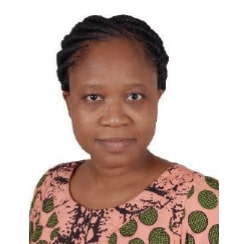MSE Seminar Series

Friday, February 19, 2021 @11:40am
*Remote course - Zoom link will be provided
Marielle Agbahoungbata, X-TechLab Coordinator, Cotonou (Bénin)
presents
X-TechLab, Using X-rays as multidisciplinary tools for development
ABSTRACT:
Due to their unique capacity to reveal the structure of matter at the atomic scale and hence to provide insight into materials properties, X-rays experimental and analysis techniques (crystallography, tomography, etc.) are indispensable tools for addressing major challenges in many fields, including health, energy, agriculture and environment. Crystallography, for instance, underpins the development of virtually all new materials (drugs, electronic devices, building materials, etc.) and play a key role in scientific discoveries in many fields, as demonstrated by the 45 Nobel Prizes over the past century for work that is either directly or indirectly related to the determination of structure of matter [1]. Clearly, disseminating X-ray techniques among local scientific communities will be extremely valuable for addressing key socioeconomic issues in developing countries where the global burden of poverty is highly concentrated. X-rays Labs and facilities are therefore necessary. X-TechLab is a regional training platform dedicated to the use of X-ray techniques for scientific and technological research. The initiative is the result of an interaction between the Light sources for Africa, the Americas, Asia and the Middle east Project (LAAAMP) and the Sèmè City hub, one of Benin Government’s flagship projects, which aims to create a world-class knowledge and innovation center in Africa. The goal of X-TechLab is not to be a substitute to conventional academic training. Instead, it intends to endow the local and regional scientific communities with technical skills that will allow them to use X ray techniques as tools for solving specific critical socioeconomic issues. Also, this program is expected to train a breedingground of experts that will animate and contribute to the African Synchrotron Project. Starting in 2019, X-TechLab has trained more than 80 scientists (Graduate students, PhD students, Postdocs, Lecturers and Engineers) from 12 African countries: Benin, Burkina Faso, Burundi, Cameroon, Congo-Brazzaville, the Democratic Republic of Congo, Senegal, Togo, Ghana, Ethiopia, Nigeria and Côte d’Ivoire. Also, it introduced more than 1000 undergraduate students to crystallography and symmetry [2]. The goal of this seminar is to emphasize the central role of X-rays techniques to promote interdisciplinary approaches in science and to highlight the role of X-TechLab as a regional feeder facility which can significantly contribute to the development of Africa.
TEL: 00229 98140101 | 01 BP 2028 Cotonou, Benin | www.xtechlab.co

BIOGRAPHY:
Coordinator of the X-TechLab, the first X-ray techniques platform established in Benin, she is involved in a number of actions to support the development of research and education in Africa. Presently, she serves on the Steering Committee of the upcoming African Crystallographic Association. She is also a member of the LAAAMP Executive Committee (Lightsources for Africa, the Americas, Asia, Middle East and the Pacific). BSc and PhD in Inorganic Chemistry from University of Abomey-Calavi (UAC) in Benin, she spent a year as post-doc researcher at the University of Zurich thanks to a Swiss Government Excellence scholarships, and currently she is teaching a crystal-chemistry course at UAC. In September 2017, she was awarded with the first prize of the International Competition “Ma These en 180s”. In 2019, she was nominated as Magnesium in the Periodic Table of Younger Chemists by the International Union for Pure and Applied Chemistry (IUPAC). Her research focuses on the development of clays-based material for environmental remediation. She uses X-ray diffraction as the main technique in her studies, and works on the structural analysis of different types of clays and their use in the synthesis of functionalized materials such as adsorbents and photocatalysts for applications in wastewater treatment.